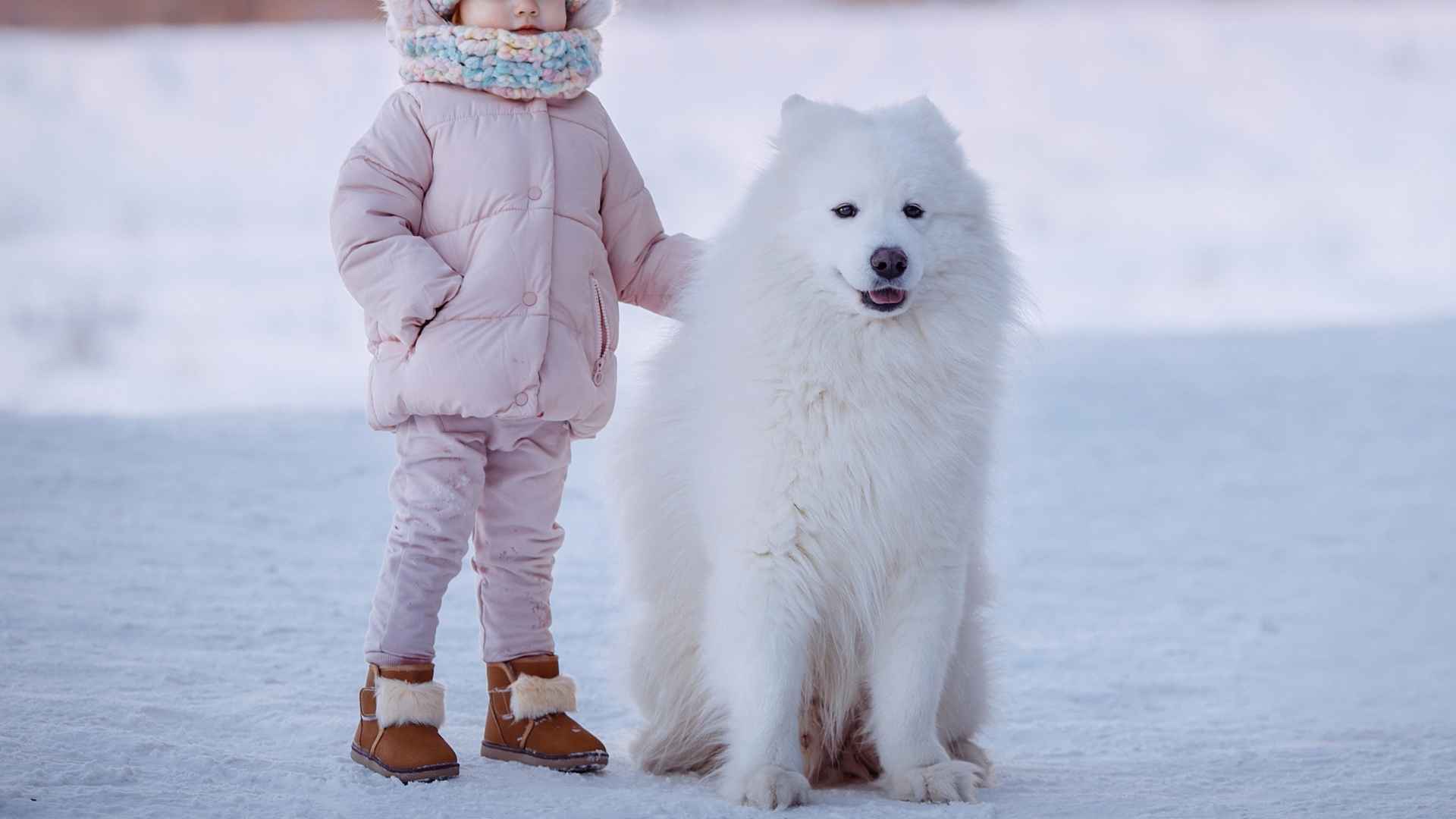Autism spectrum disorder (ASD) can affect children in many different ways—sometimes in ways the eye can’t see. From communication challenges to emotional well-being, navigating daily life can feel overwhelming for both the child and their family. That’s where the gentle presence of a dog can make a world of difference.
Dogs aren’t just loving companions—they can offer real emotional and therapeutic support to children on the autism spectrum. With their calming presence, routine-friendly nature, and ability to sense human emotions, the right dog can help reduce anxiety, enhance social interaction, and offer comfort during tough moments.
In this blog, we’ll explore the best companion dog for autistic children—those that shine for their patience, loyalty, and gentle temperament. Whether you’re considering an autism service dog, a therapy pup, or a friendly household companion, this guide will help you find a four-legged friend who can truly become part of your support team.
Companion Dog Breeds For Autistic Children
1. Golden Retriever
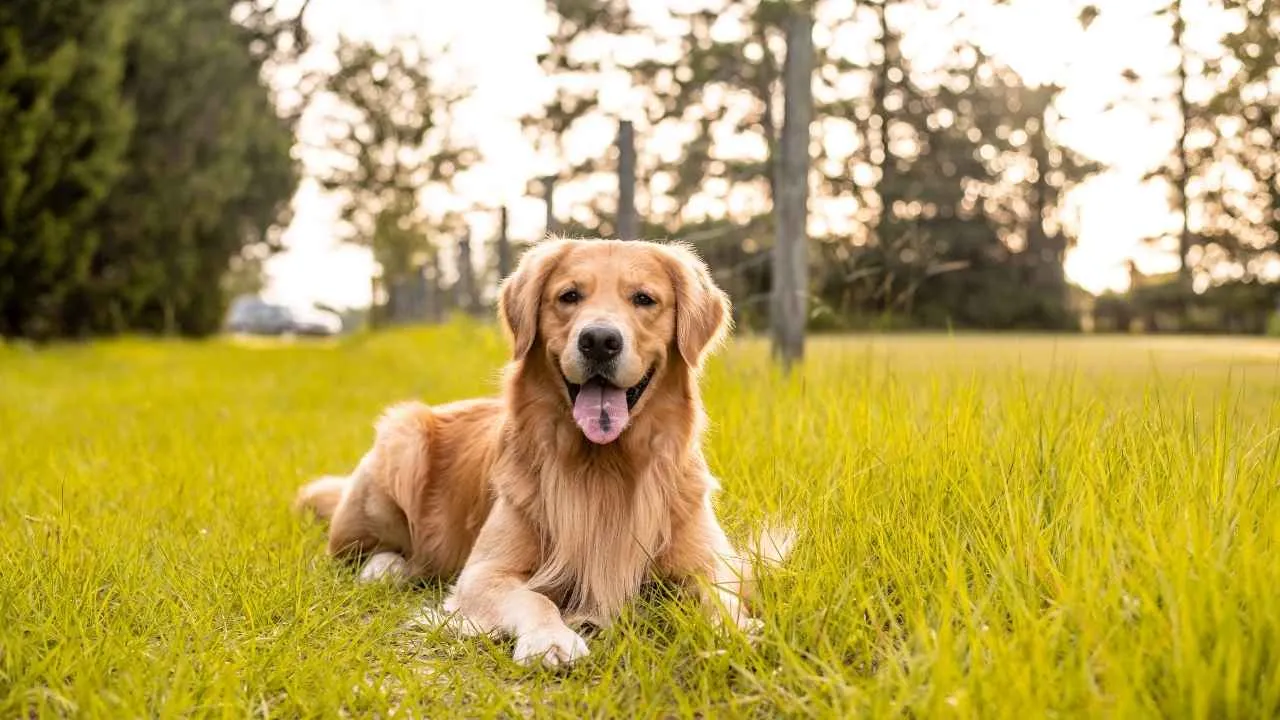
It’s no wonder Golden Retrievers are a fan favourite—they’re sweet-natured, eager to please, and radiate sunshine wherever they go. Ranked among the most popular breeds, Goldens are more than just pretty faces. They thrive in both companion and service roles, especially for children on the autism spectrum.

These lovable fluffballs are gentle, patient, and incredibly in tune with human emotions. Their calm and friendly personality helps create a soothing environment, especially for kids who may experience anxiety or sensory overload. And if sound sensitivity is a concern, you’ll be happy to know Goldens are relatively quiet—more tail wags, less barking!
Golden Retrievers are also super smart and love to learn, making them a dream to train. Whether it’s offering emotional support or simply being a steady presence, they’re always ready to lend a paw. Just keep a brush handy for their gorgeous coats, and be mindful of potential joint issues as they age.
Their gentle and tolerant nature makes Goldens excellent emotional support companions. They don’t just stick by your side—they tune in. Many can even be trained to sense the early signs of anxiety or repetitive behaviors in children and gently interrupt them with a soft paw or nudge. It’s a sweet, subtle way they help bring calm and focus when it’s needed most.
Simply put, Golden Retrievers aren’t just dogs—they’re golden-hearted companions who bring love, comfort, and a whole lot of tail-wagging joy to the lives of children with autism.
2. Saint Bernard
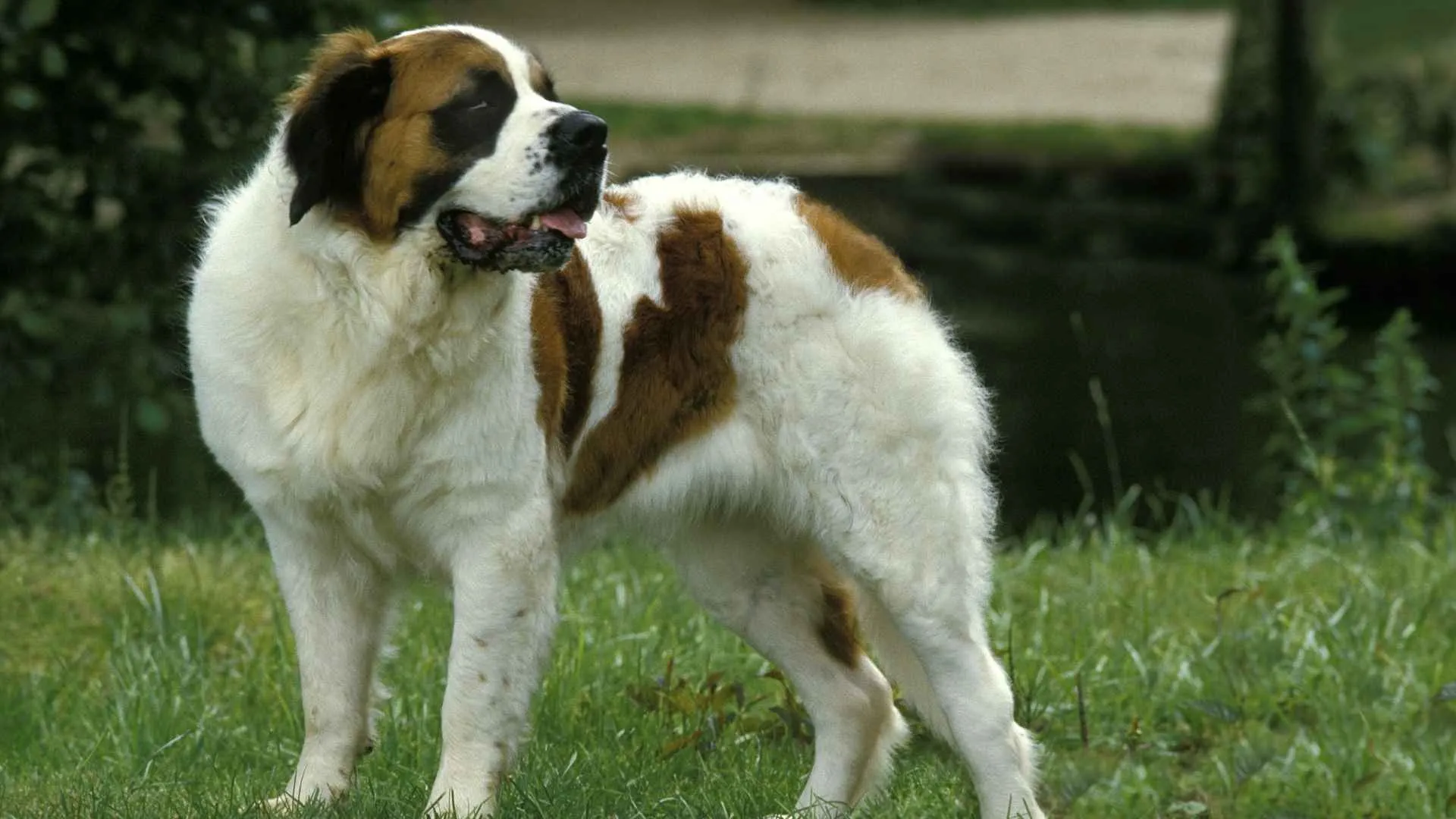
If you remember Beethoven, then you already know these gentle giants are hard not to love! Saint Bernards may be massive, but they’re also famously mellow, affectionate, and incredibly patient, making them a surprisingly sweet fit for families with autistic children.
Their calm nature and friendly demeanor help create a comforting presence, especially in busy or unfamiliar environments, states Hillspet.
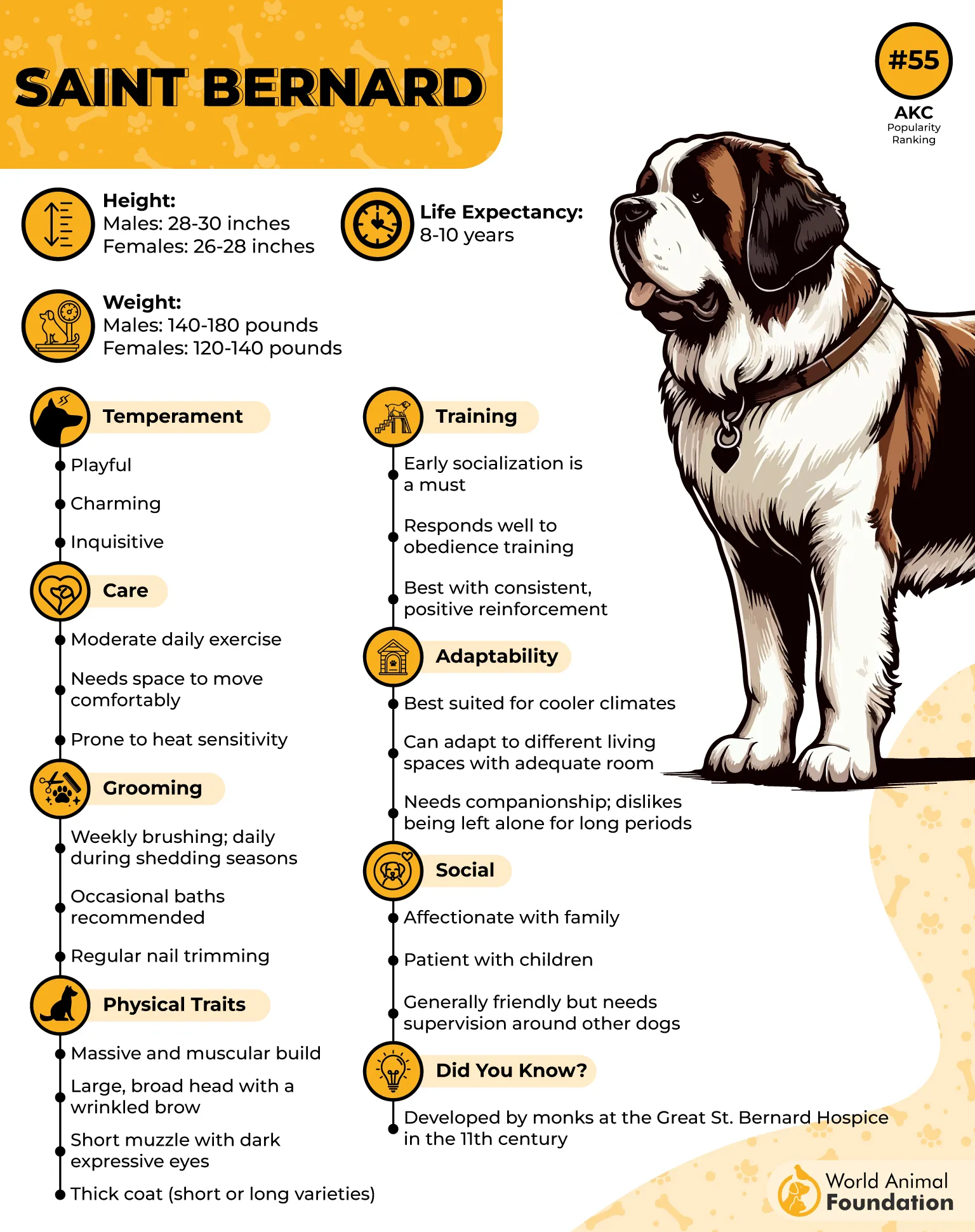
Though they can be a bit stubborn at times (hey, nobody’s perfect!), Saint Bernards are eager to please and usually respond well to training, especially when it starts early. They’re also smart enough to handle simple tasks, which makes them a potential option for therapy work.
Just keep in mind that their size can be a bit overwhelming for very small children, so supervision is key during playtime.
Social butterflies at heart, these dogs love being part of the family fun—and don’t be surprised if they sulk when left out. They bond deeply with their humans and can become protective in the best, most loyal way.
With the proper training and socialization, Saint Bernards are not just family dogs—they’re gentle protectors and snuggle buddies rolled into one big, furry package.
3. Labradoodle

Labradoodles, the adorable mix of a Labrador Retriever and a Poodle, are total crowd-pleasers—and for good reason. These curly-coated cuties are known for being smart, playful, and affectionate, making them a top pick for children with autism. Even better? They’re allergy-friendly thanks to their low-shedding coats, which is a major win for households with dander sensitivities.
Despite not being 100% hypoallergenic (spoiler: no dog really is), Labradoodles have dense, low-dander fur that’s much easier on the sinuses. Their coats do require some regular grooming, so plan for brushing sessions and the occasional trip to the groomer.
What really makes Labradoodles shine is their personality. These “forever puppies” are social butterflies who love to play, cuddle, and soak up all the attention. They’re gentle, tolerant, and patient—even when kids give them goofy hugs or clumsy snuggles.
Their emotional sensitivity, gentle nature, and eagerness to please make them standout candidates for emotional support animal and service roles, states Autismhorizone.
Training a Labradoodle? Total breeze. They’re whip-smart and love making their humans proud, which makes them ideal for learning therapeutic tasks like deep-pressure calming or tactile reassurance. With the right guidance (and a pocket full of treats), they’ll thrive as dependable canine companions for children on the autism spectrum.
4. Collie
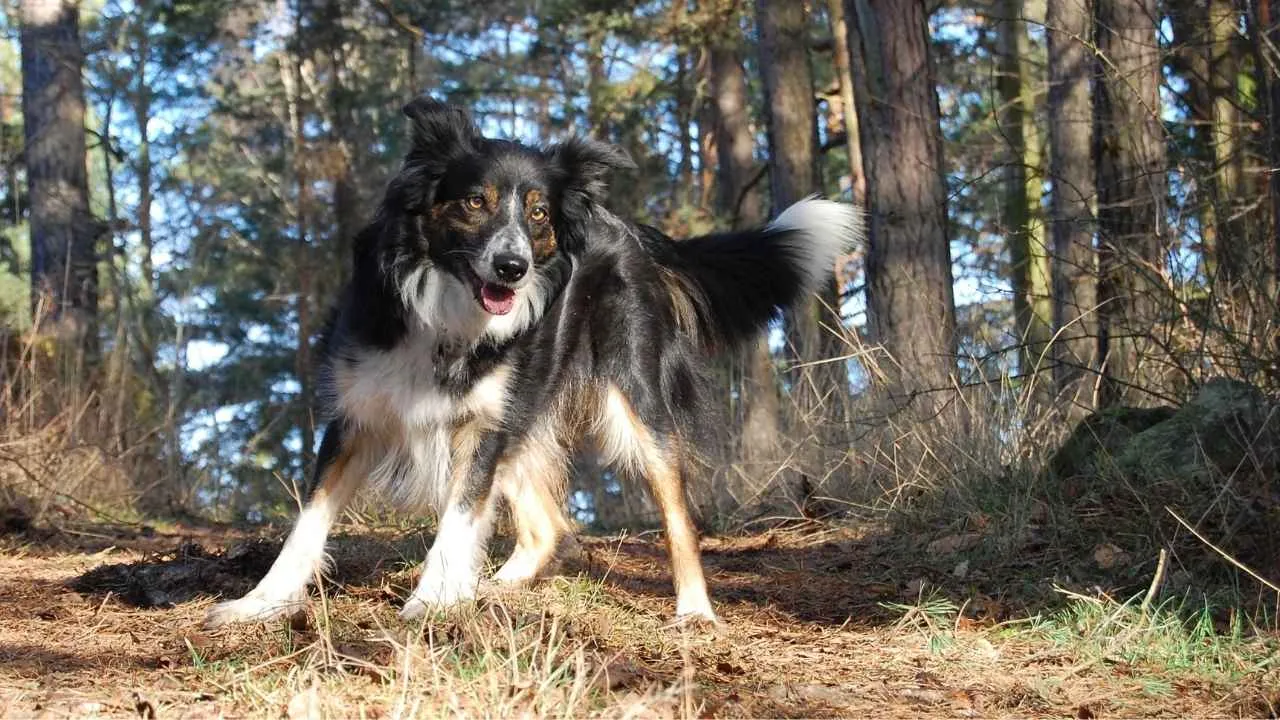
Collies are total social butterflies with a heart full of love for just about everyone—kids, babies, strangers, other pets—you name it. They’re playful, affectionate, and happiest when part of the action. Whether it’s chasing a ball in the backyard or joining the family movie night, a Collie is always down to be your four-legged teammate.
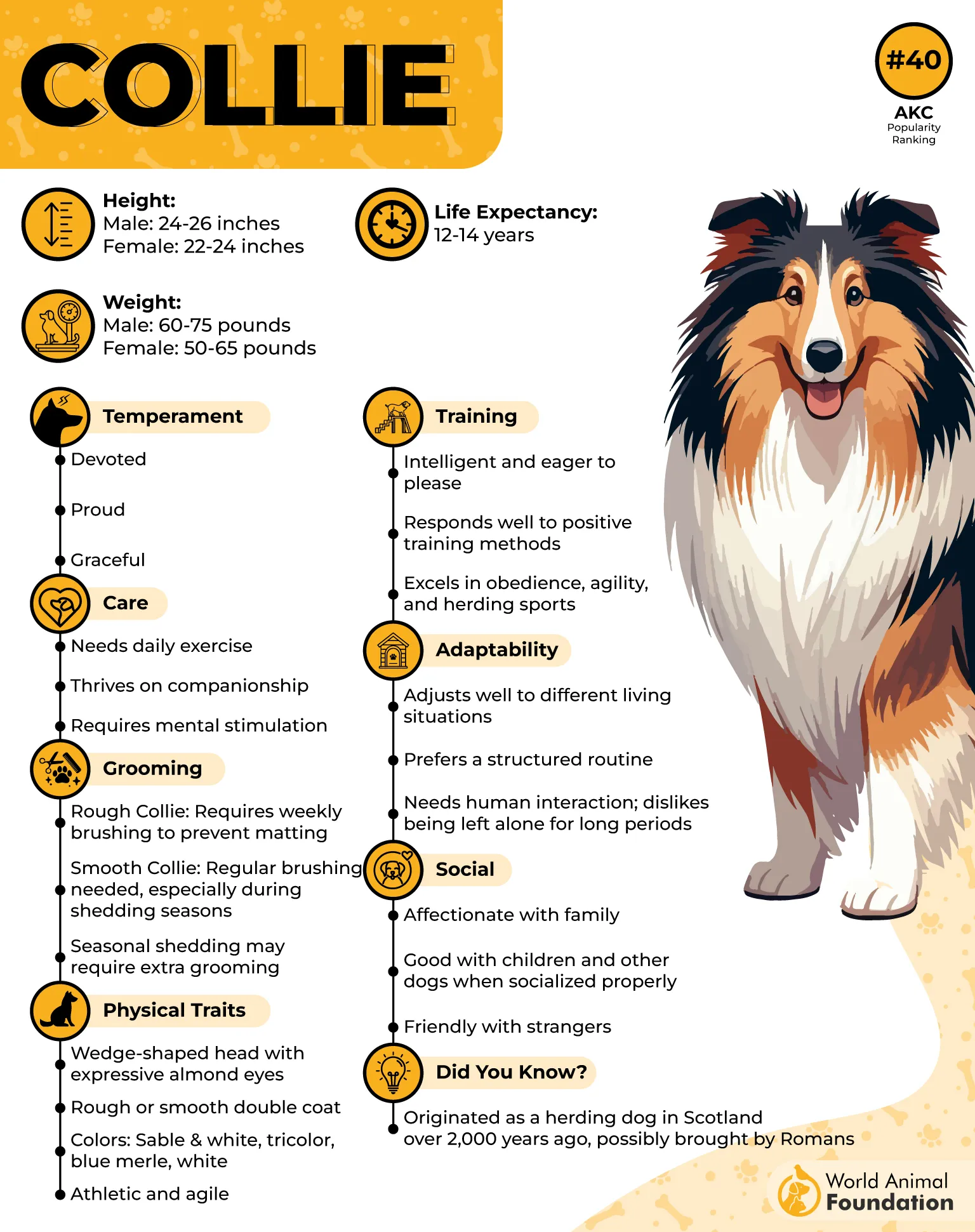
Behind that gorgeous, flowing coat is a brainy, emotionally in-tune pup. These dogs are famously gentle and intuitive, which makes them amazing companions for children with autism.
Their sensitivity to human emotions means they’re quick to comfort and naturally adapt to their environment—traits that shine in therapy dog roles. And yes, they’re total softies, not biters or barkers.
Training a Collie is often a dream. Their eagerness to please and strong work ethic make them ideal for families seeking structure and routine.
Just keep in mind—they’re energetic and thrive on mental stimulation, so be ready to engage their sharp minds with play, challenges, or even some good old-fashioned Frisbee time. For first-time dog parents, Collies bring that perfect mix of fun, affection, and intuitive companionship.
5. German Shepherd
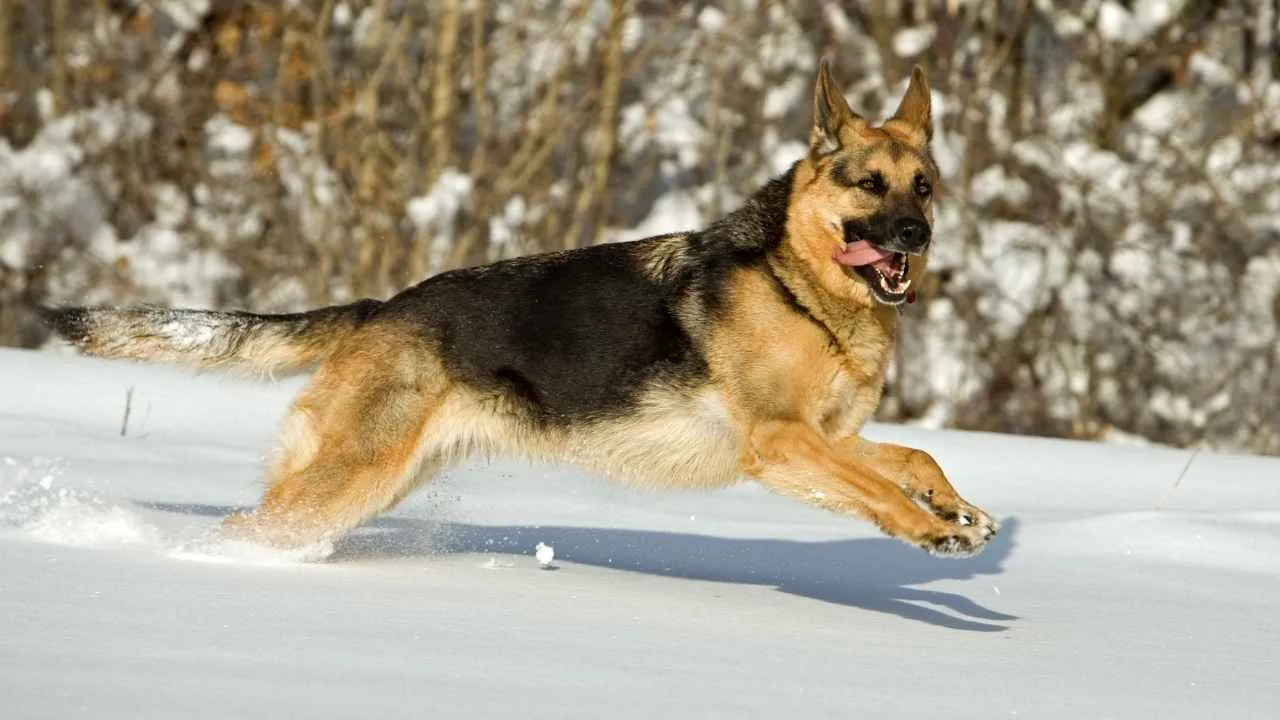
German Shepherds are the total package—loyal, brilliant, and calm under pressure. These noble canines are natural protectors and thrive when they’ve got a job to do, especially one as important as being a service dog for a child with autism. Whether it’s standing guard in a busy crowd or gently nudging their kiddo away from danger, they take their role seriously—and look good doing it.

One of the biggest reasons families choose German Shepherds as autism support dogs is their incredible emotional intelligence. They can sense when anxiety is creeping in and respond with soothing pressure or a calming touch.
These dogs aren’t just there to perform specific tasks like fetching items or opening doors—they’re there for the tough moments, too, offering deep-pressure therapy (DPT) and steadfast emotional support when meltdowns or sensory overload strike.
They’re also great for helping kids build confidence. With a German Shepherd by their side, many autistic children feel safer exploring the world, from navigating public spaces to interacting with peers. These dogs act as a bridge to better communication and social skills, all while keeping things fun with playtime and companionship that feels more like having a best friend than a helper.
Caring for a German Shepherd—feeding, walking, and grooming—can help a child develop valuable life skills. And let’s be honest: few things spark joy quite like the bond between a child and their pup. German Shepherds are fiercely loyal and form deep, meaningful connections with their humans, offering love and reassurance every step of the way.
6. Bernese Mountain Dog
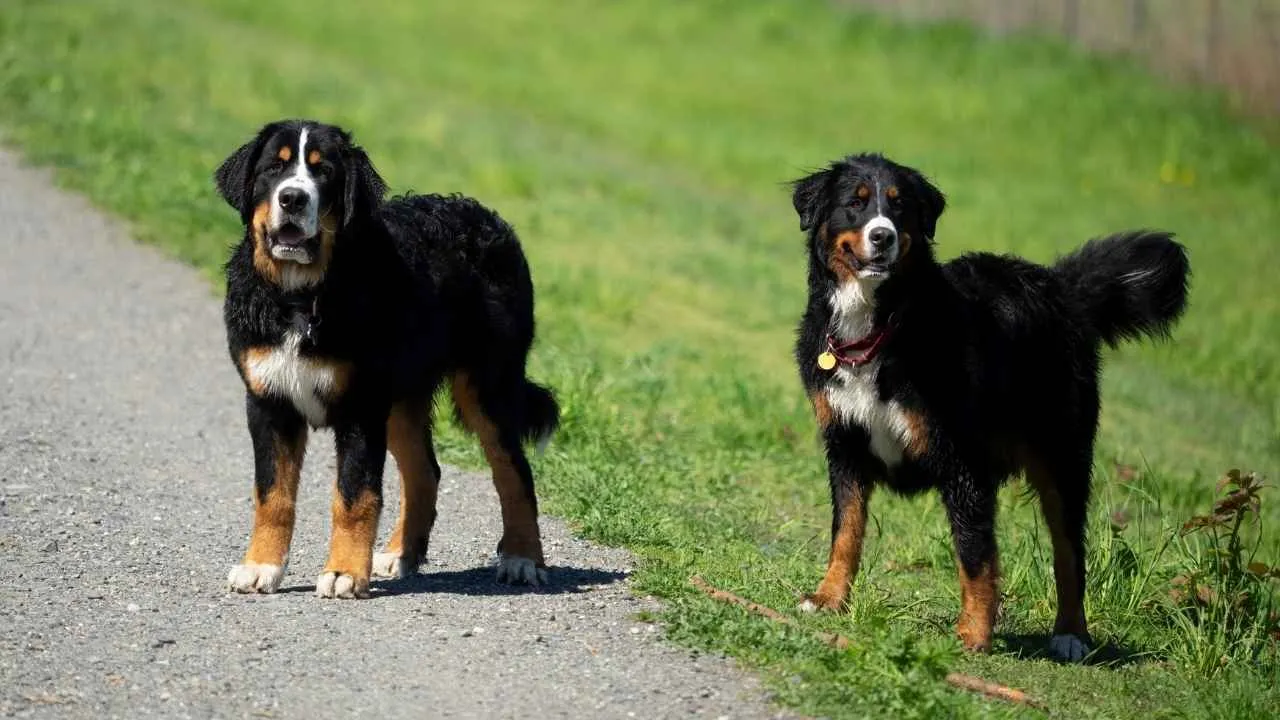
If you’re looking for a gentle giant with a heart as fluffy as its fur, meet the Bernese Mountain Dog. These lovable teddy bears are calm, affectionate, and totally devoted to their humans, making them incredible companions for children on the autism spectrum.
They’re the kind of dog that doesn’t just sit beside you, they feel with you. Sensitive by nature, they pick up on emotional cues and offer comfort with their steady presence and soulful eyes (yep, they’ve got those too!).
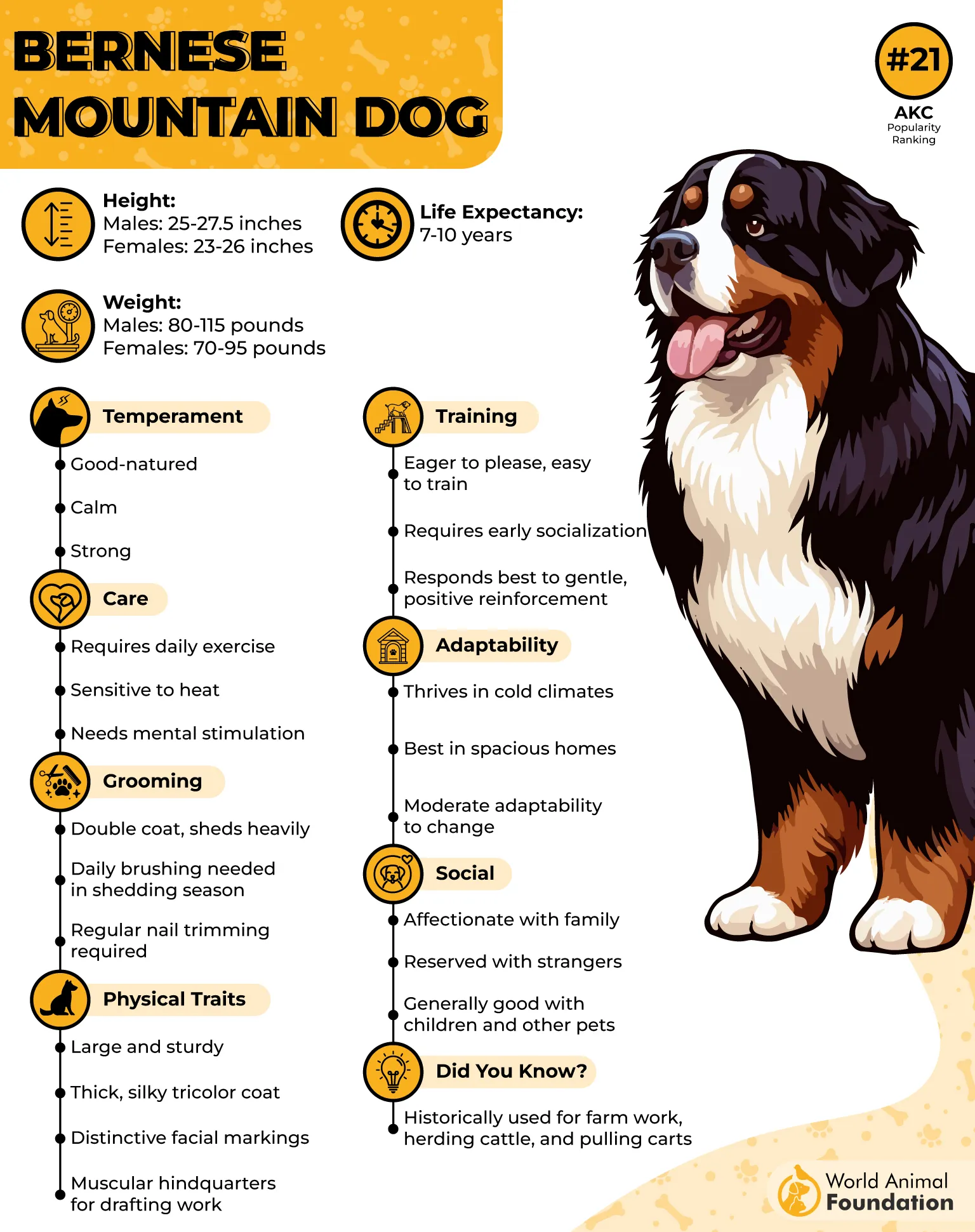
Despite their size, Bernese Mountain Dogs are incredibly gentle, especially with kids. Their calm, tolerant nature makes them a great match for children who are sensitive to noise or touch. Best of all, they love being helpful, whether that’s offering deep pressure comfort during anxious moments or simply being a steady, grounding presence.
Training a Berner is surprisingly straightforward. These intelligent, eager-to-please pups can learn to alert to danger, provide mobility support, or help a child feel safe in crowds. Yes, they shed like crazy and drool more than a little—but their cuddles, devotion, and calm temperament make it all worth it.
Whether you adopt or work with a trainer, bringing a Bernese Mountain Dog into your home means adding a loyal friend who offers more than companionship. For children with autism, they provide emotional support, confidence, and the kind of unconditional love only a Berner can give.
7. Samoyed
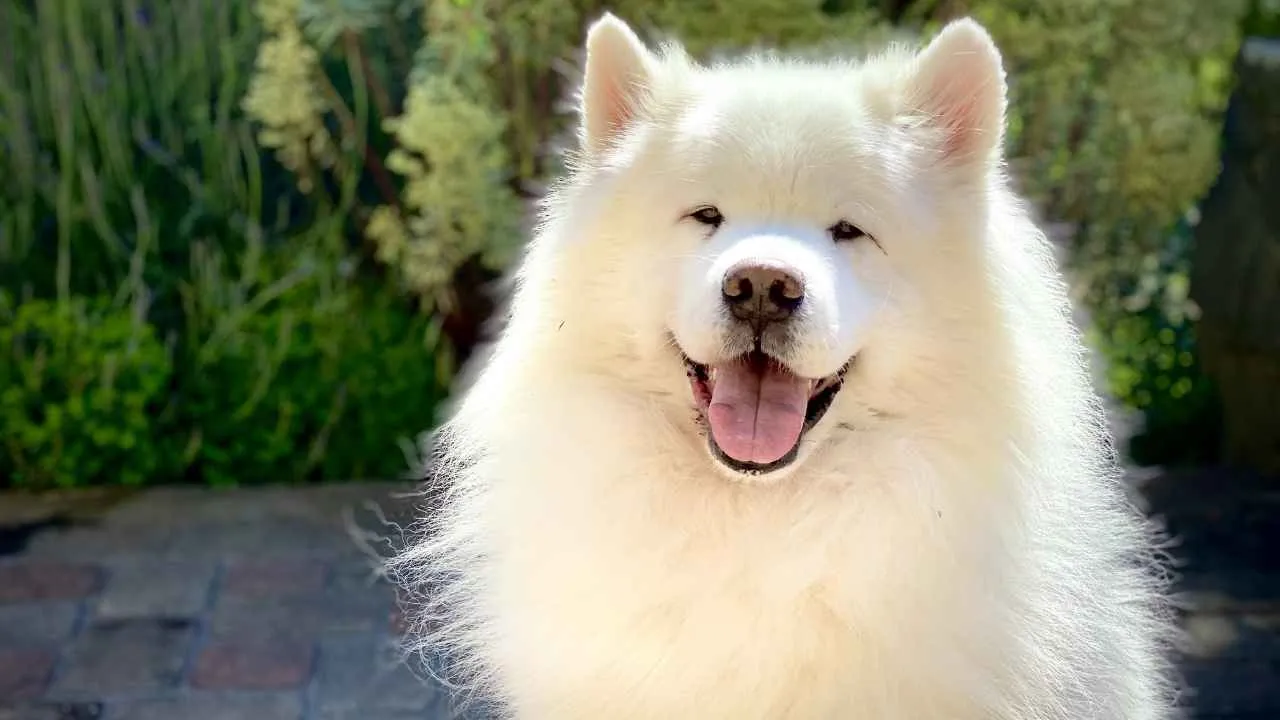
Ever seen a dog that looks like a walking cotton candy cloud with a permanent smile? That’s the Samoyed! These fluffy charmers are more than their good looks—they’re smart, affectionate, and thrive on connection, making them a great fit for families with autistic children. Just be ready for their boundless energy—daily walks and playtime are a must.
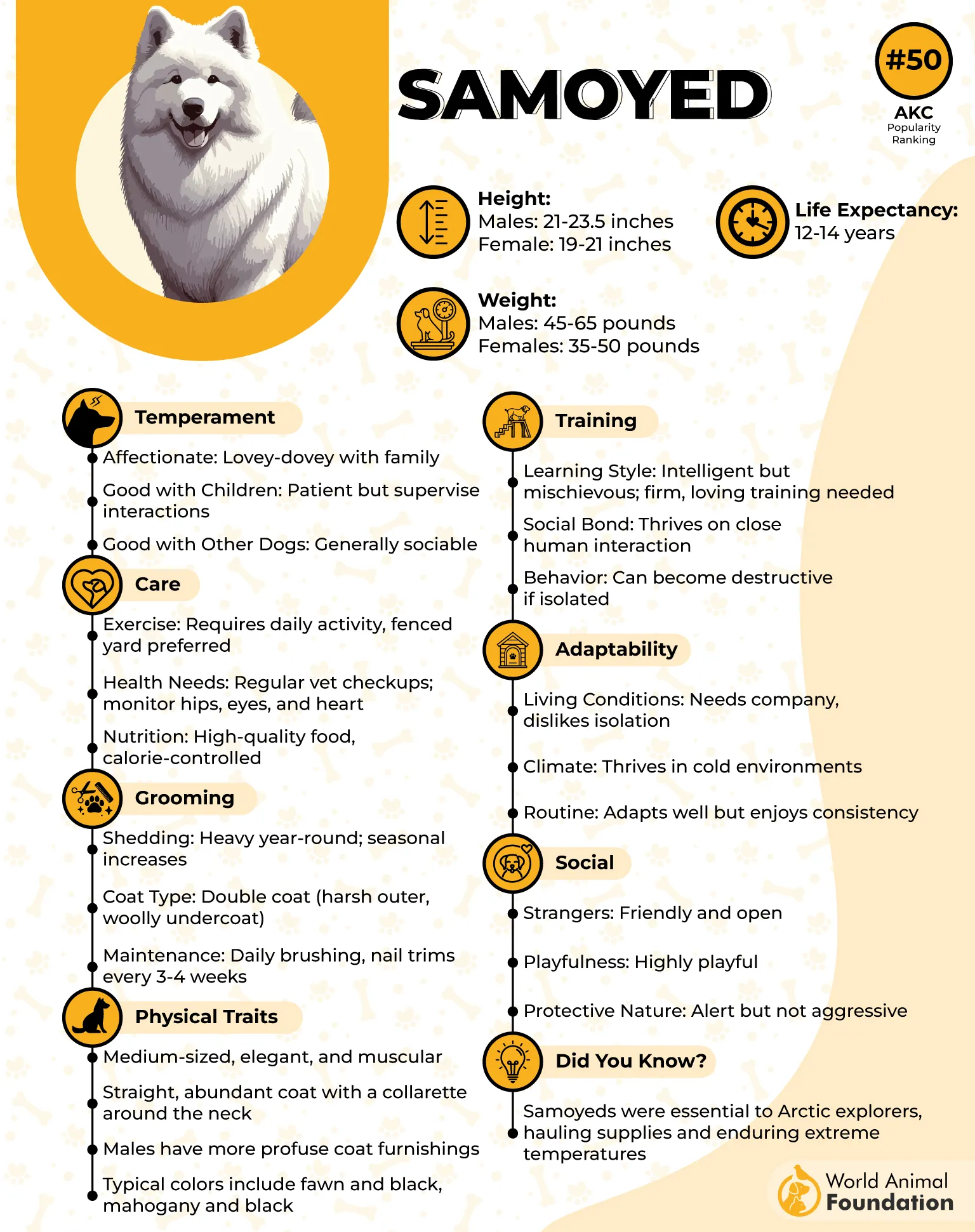
Originally bred to herd reindeer and pull sleds in Siberia, Samoyeds have serious stamina and a love for adventure. They’re fantastic with kids and bring a happy, calming presence to the home. But heads up—they’re also quite vocal and won’t hesitate to announce every visitor with enthusiastic barks.
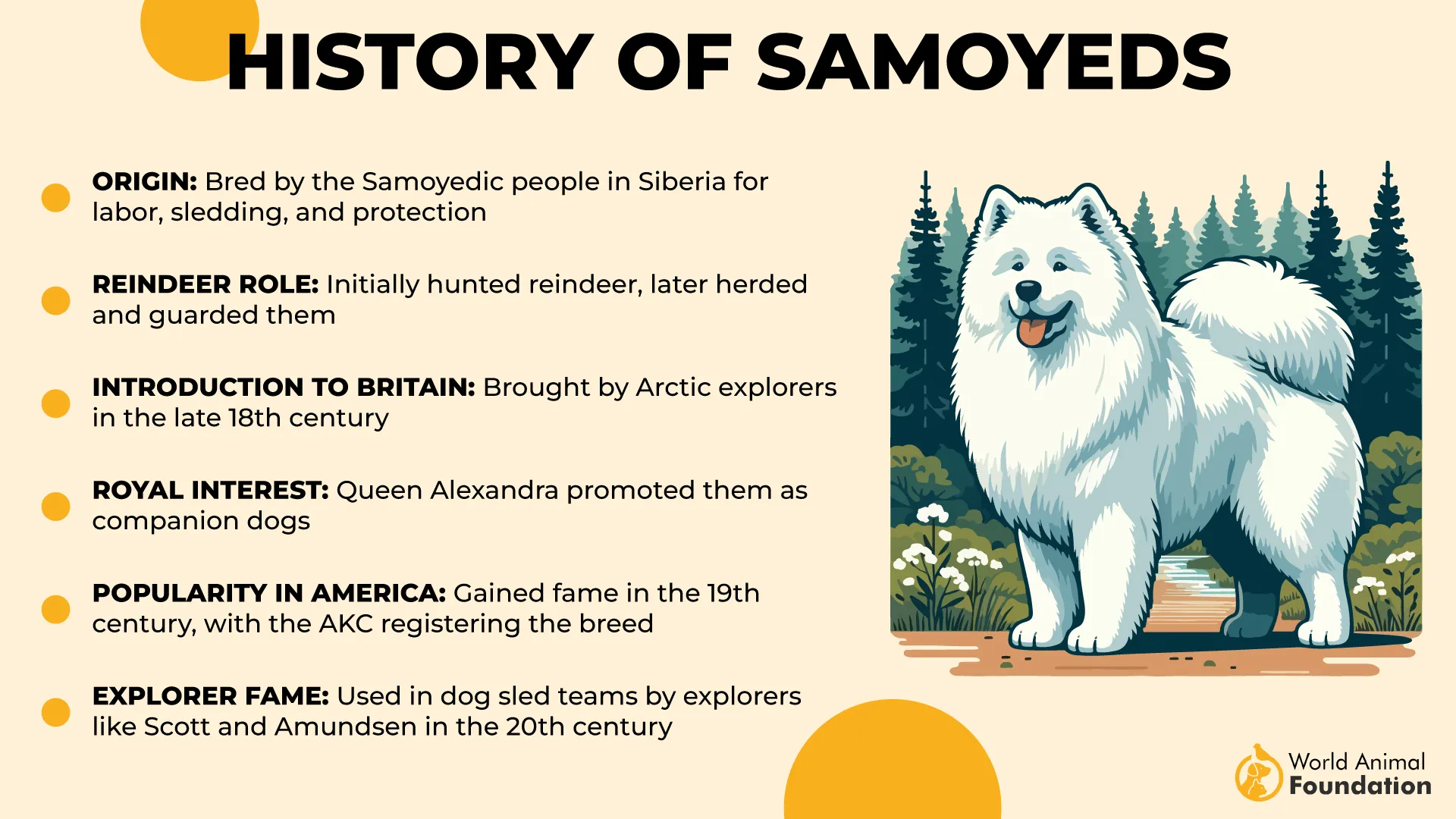
Training a Samoyed is like working with a furry diplomat. They’re clever and enjoy learning, but can be a little independent. While they may not excel at focused service tasks, they shine in emotional support roles thanks to their warm, comforting nature and ability to ease anxiety.
These dogs need space and stimulation—apartment life or boredom can lead to chewed shoes and chaos. And with their slow-maturing personalities, a little patience goes a long way. A home with structure, routine, and room to roam is ideal.
If you’re up for outdoor adventures, don’t mind a few barks, and love a bit of mischief, a Samoyed might be your perfect match.
8. Newfoundland
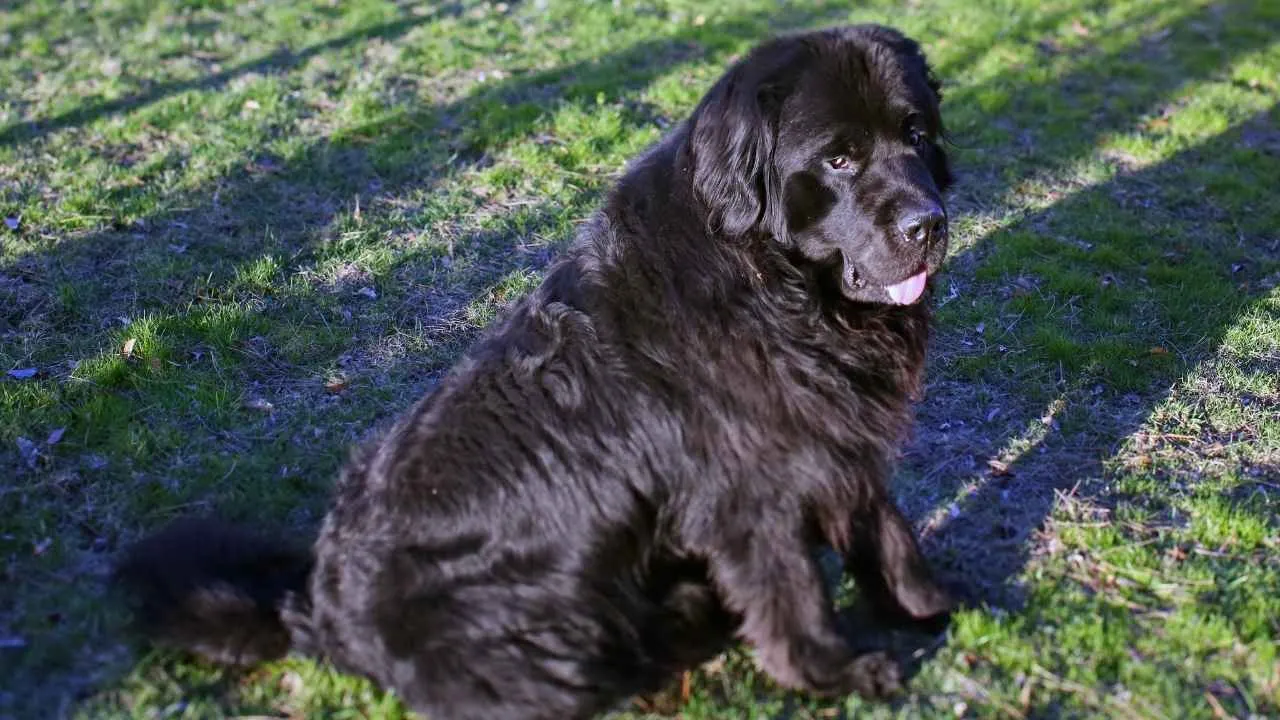
Big, fluffy, and full of heart—meet the Newfoundland, or “Newfie.” Originally bred to haul nets and rescue fishermen, these gentle giants are natural swimmers with a soft spot for kids. Their patient, protective nature even earned them the nickname “nanny dogs”, states WebMD.
For children with autism, Newfies offer a calming, judgment-free presence. Their mellow temperament and warm affection help kids feel safe, seen, and supported—no words needed, just a quiet nuzzle or a steady tail wag..
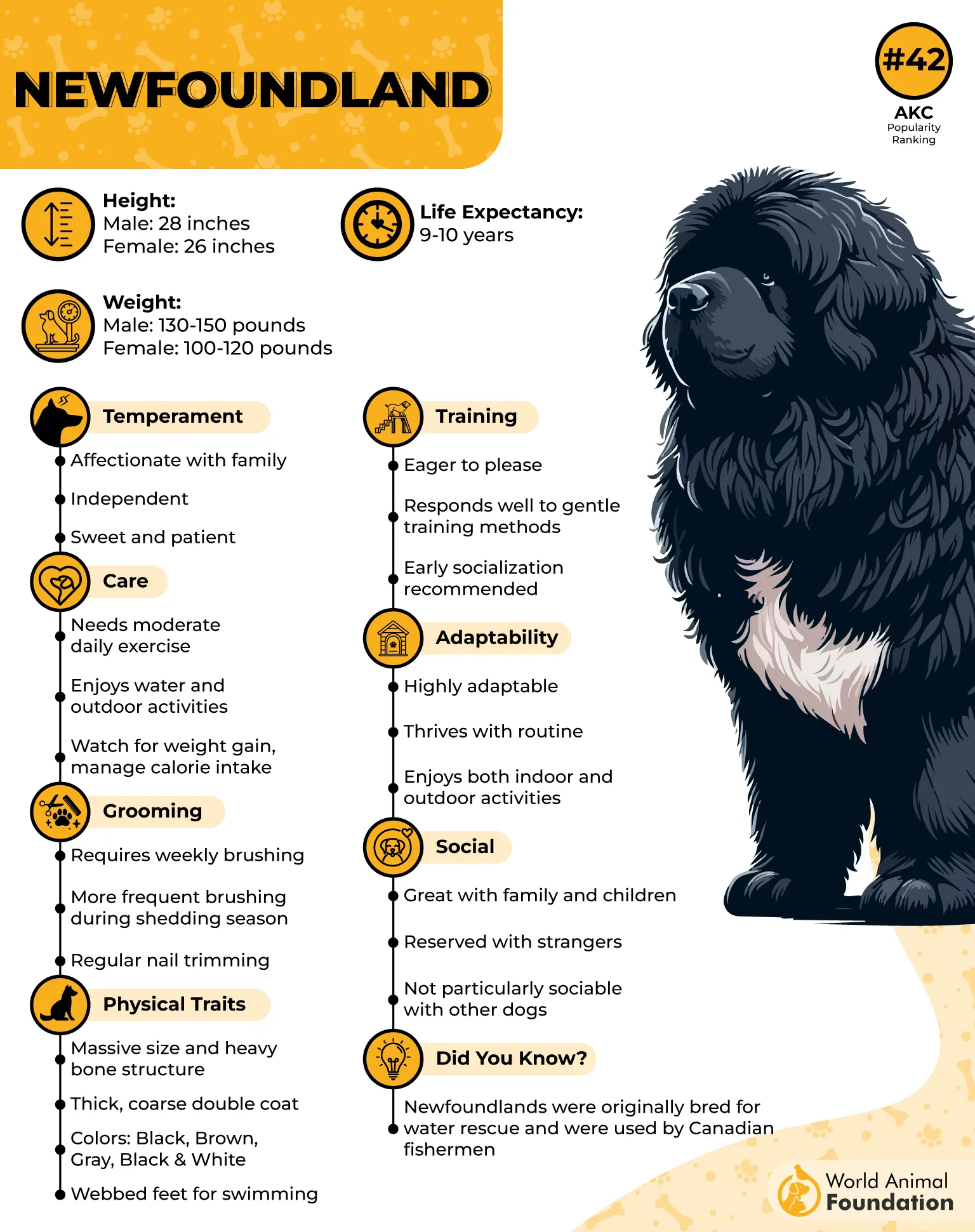
Despite their size, Newfies are low-energy companions. They’re content with gentle play and downtime, making them great for quieter homes. Their intelligence and eagerness to please also make training a breeze.
Loyal, intuitive, and endlessly kind, Newfoundlands have long been trusted as therapy dogs. If your family’s looking for a loving giant who brings comfort and calming influence—plus loves a good splash—a Newfie might just be your perfect fit.
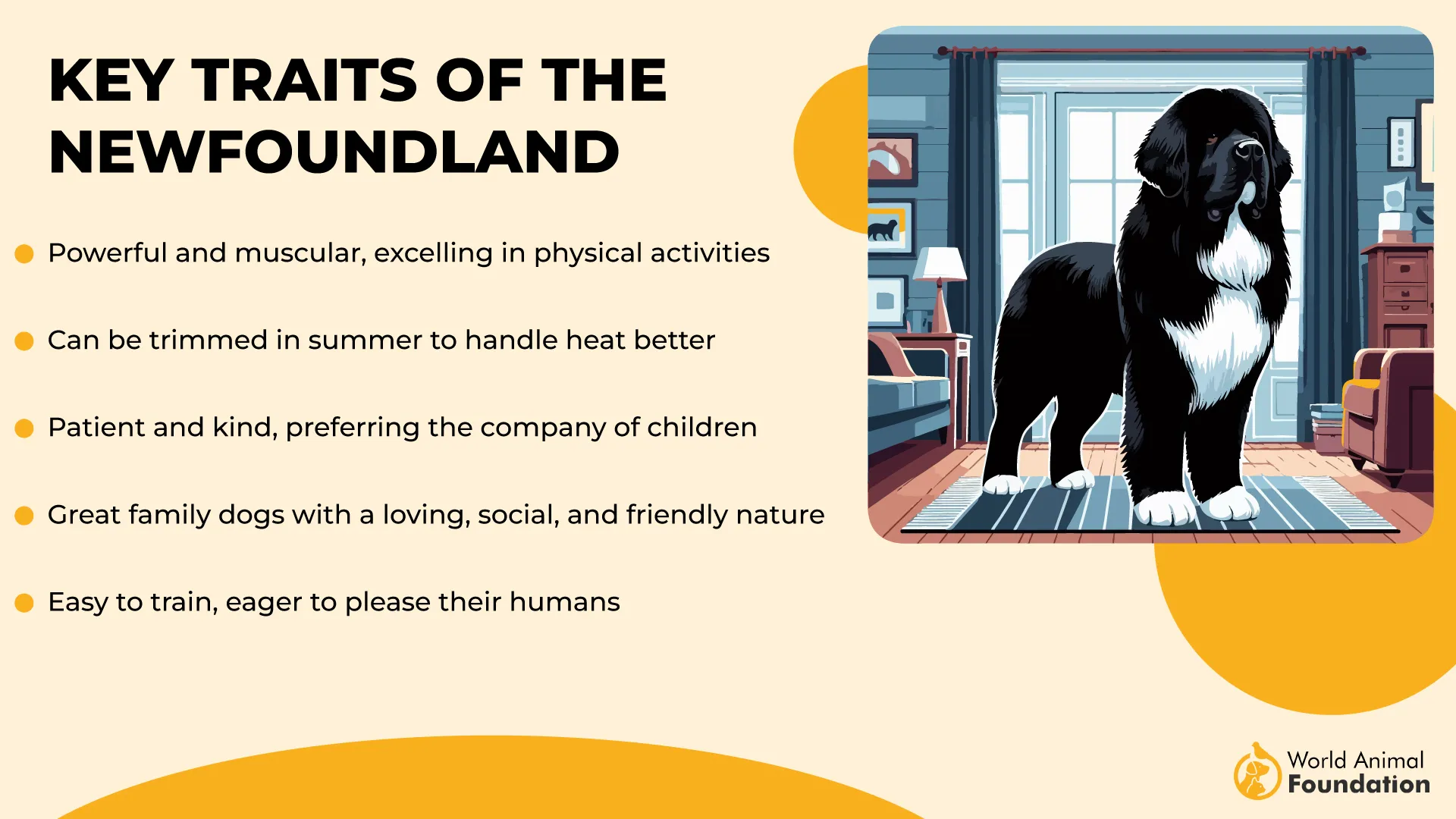
Beyond cuddles, Newfies make great assistance dogs. Many are trained to wear vests or tethers, helping guide and ground children prone to wandering. Holding onto a dog’s handle offers both safety and emotional confidence.
9. Staffordshire Bull Terrier
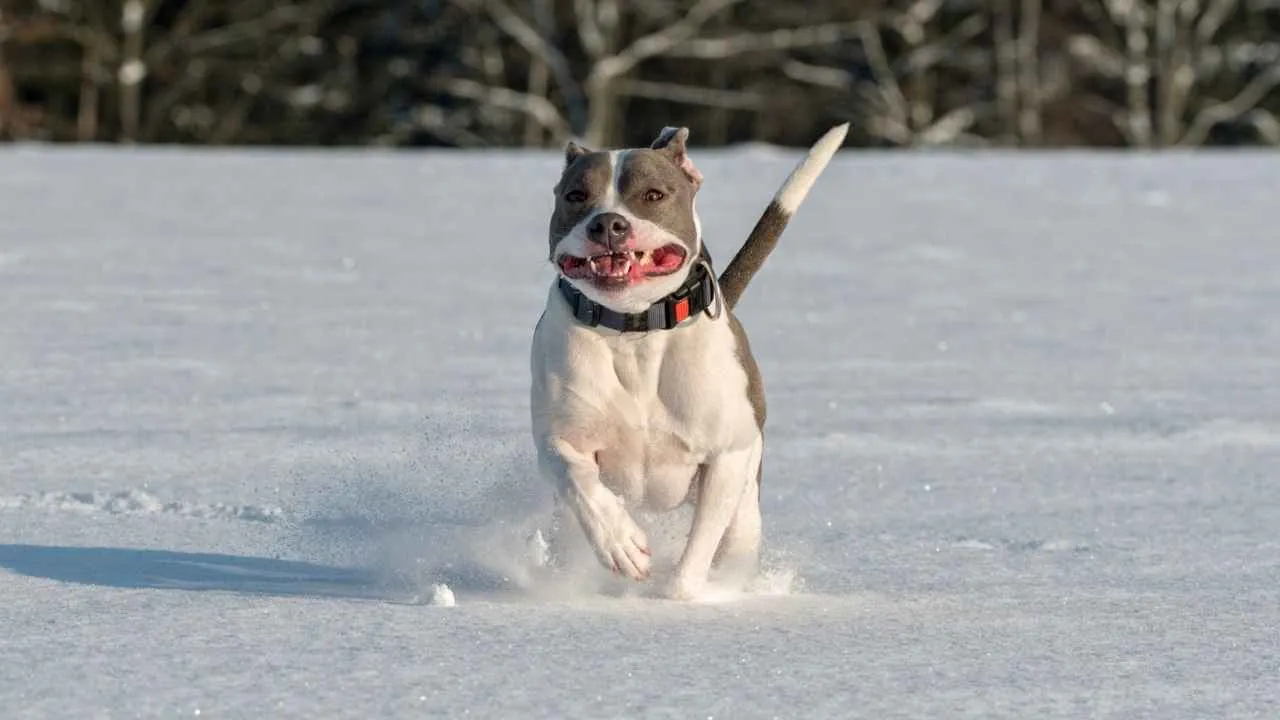
Let’s talk about one of the most misunderstood sweethearts in the dog world: the Staffordshire Bull Terrier. Despite their tough looks, Staffies are affectionate, loyal, and deeply connected to their families, especially kids. For autistic children needing emotional grounding and routine, a Staffy offers steady, loving companionship.
Nicknamed the “nanny dog,” Staffies are famously gentle with children. They’re playful yet patient, and often tune in to a child’s emotions. On tough days, a Staffy won’t be far—likely curled up beside your child, offering quiet comfort with zero judgment.
Training is a breeze thanks to their people-pleasing nature. Staffies are eager learners who respond well to consistency and threats. Their energy makes them great playmates for active kids, turning games and training into bonding time.
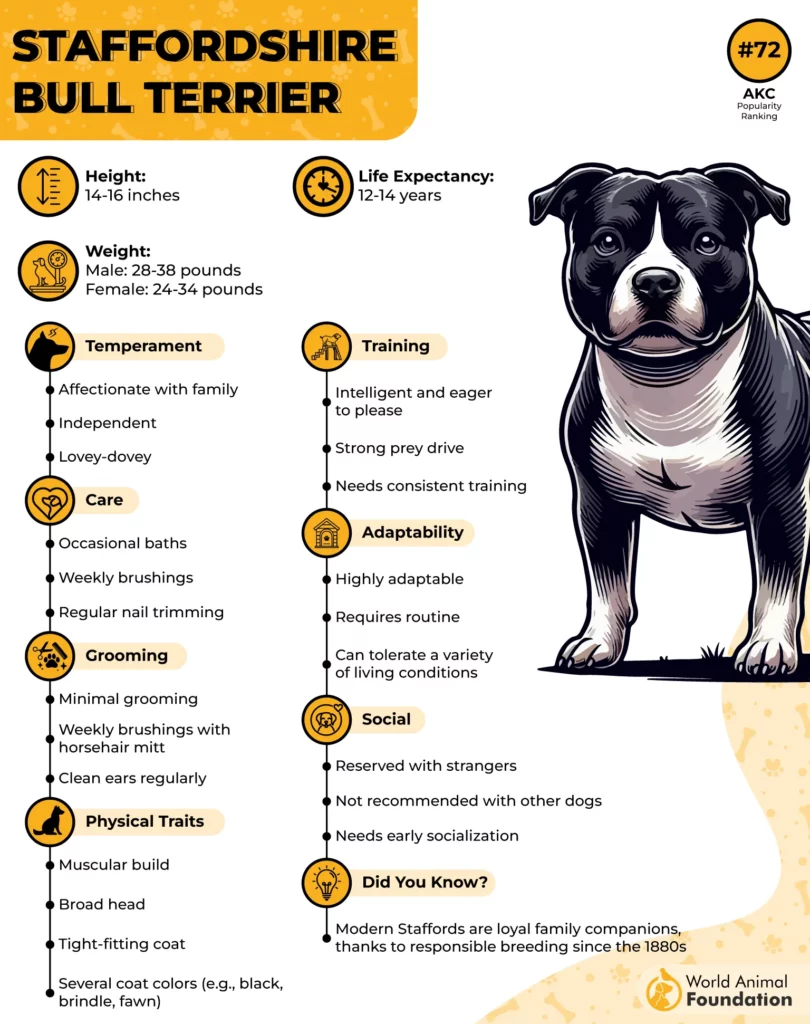
Yes, they can be strong and a bit rowdy, so supervision around small children or the elderly is wise. But with early socialization and guidance, they become respectful, well-adjusted companions who adapt to a variety of home environments.
Forget the old myths—modern Staffies are emotionally intelligent, loving, and loyal to the core. With the right care and a little patience, they offer years of companionship, playfulness, and unwavering support, especially for a child who needs a true best friend.
10. Poodle
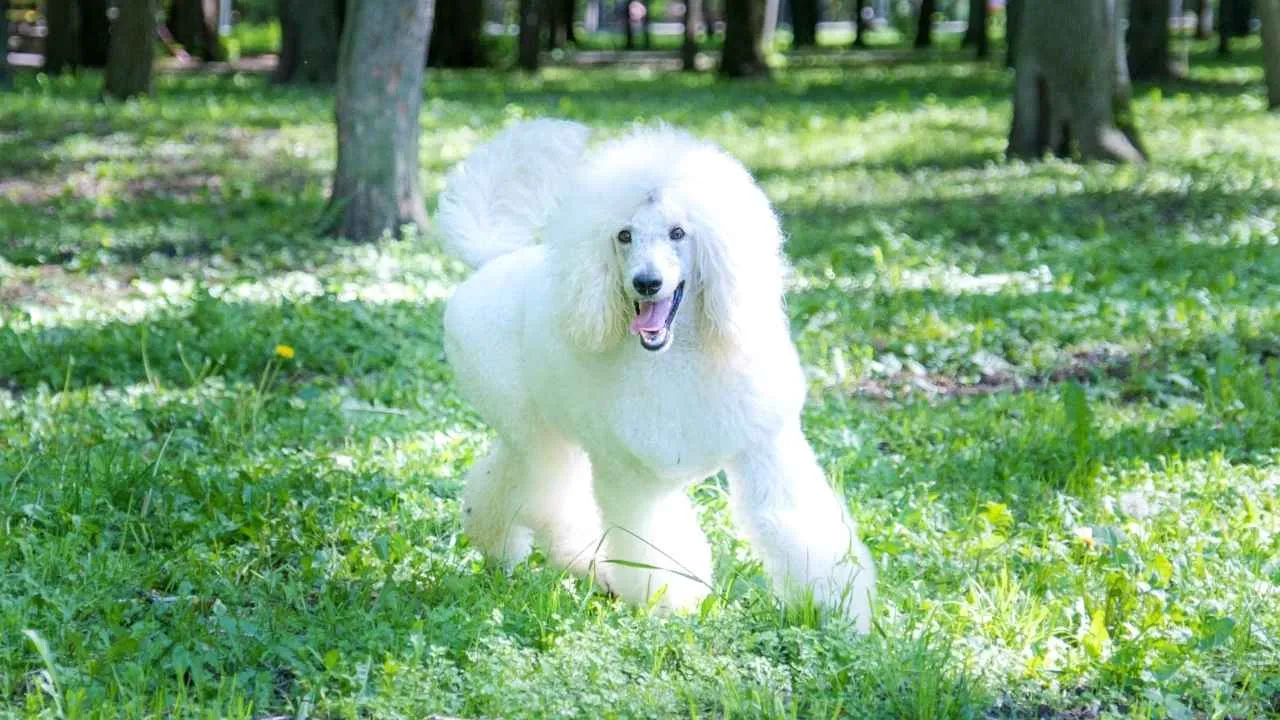
Don’t let the fancy haircut fool you—Poodles are more than just pretty faces. Behind those curly coats is a brain that’s practically built for service work. These pint-sized geniuses are sharp, obedient, and eager to learn just about anything you teach them—perfect qualities for a support dog in a family with a child on the autism spectrum.
What really makes Poodles shine is their gentle, empathetic vibe. They seem to have an emotional radar that lets them tune into their human feelings. If your kiddo is having a rough moment, their toy poodle buddy will be right there offering comfort, calm, and a soft nuzzle at just the right time. Their non-shedding, hypoallergenic coats are a dream for families managing allergies, too.
Poodles love structure (just like many autistic children do), which makes training a breeze. With the right guidance, these small dogs can learn a variety of helpful tasks—from providing deep pressure therapy and interrupting repetitive behaviors to alerting parents when something feels off.
They’re also ace at helping kids feel more confident and promoting social interactions, or just snuggling up for a peaceful night’s sleep. From improving communication skills to offering a deep sense of security, a Poodle does more than provide companionship—they become a life-enhancing partner.
Add in their status as a hypoallergenic breed and low-maintenance size, and you’ve got a loving, loyal, and super-smart furry friend that fits seamlessly into your family’s rhythm. Poodles? Total heart-stealers.
Conclusion
Choosing the right companion dog can greatly enhance the emotional and social well-being of a child with autism. Breeds like the Cavalier King Charles Spaniel, Toy Poodle, and other suitable breeds are known for their affectionate nature, gentle temperament, and ability to support emotional regulation.
Unlike service dogs certified by licensed service dog providers or Assistance Dogs International, these dogs, when properly trained, can still perform specific tasks, such as interrupting self-harm or easing anxiety.
Dog ownership, especially with recommended breeds, can foster emotional development, strengthen family bonds, and facilitate social interaction. The best dog depends on the child’s personality, the dog’s training, and your family’s lifestyle. Whether specially trained or not, these amazing animals offer more than companionship—they bring comfort, stability, and joy to children and their families.


